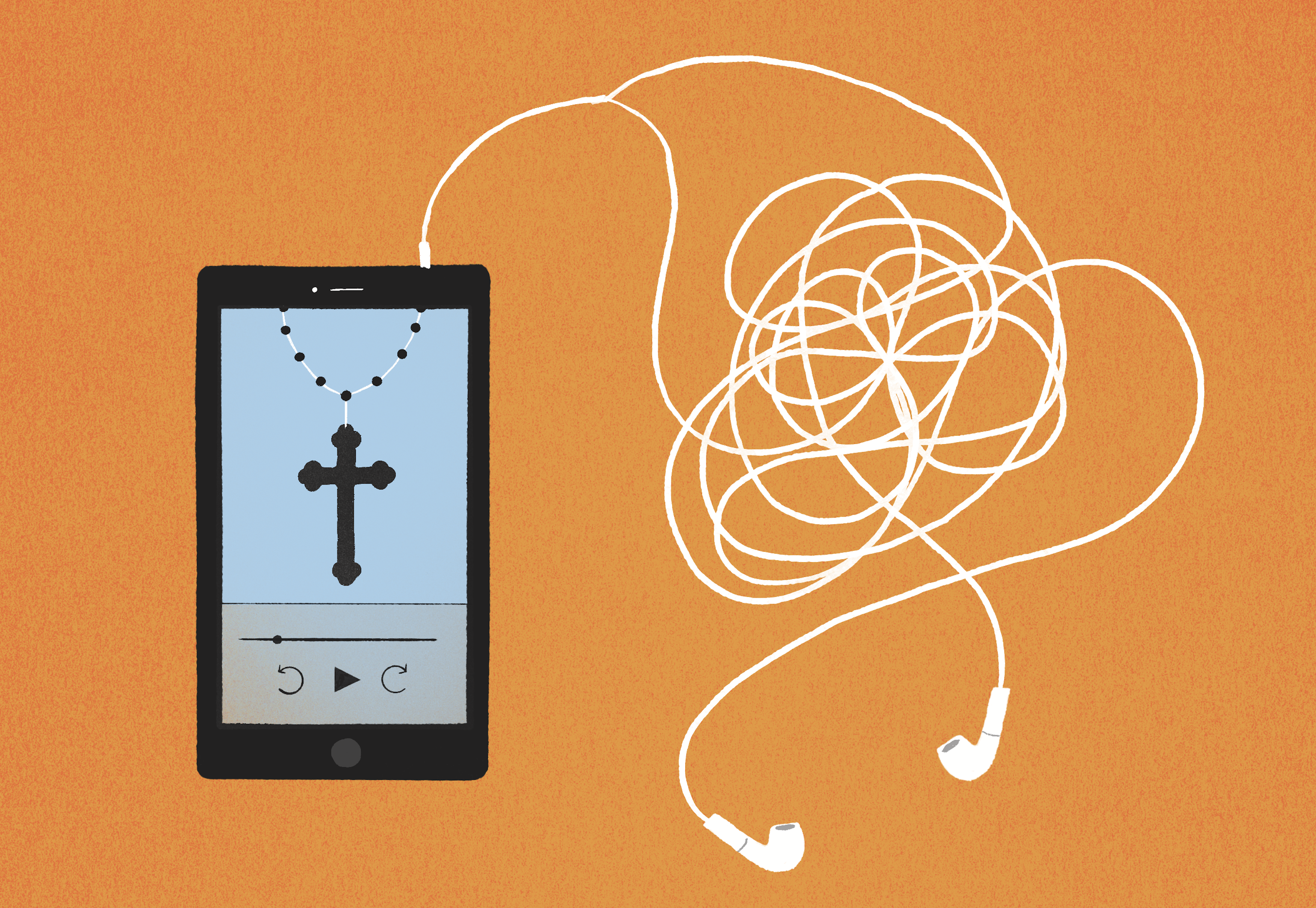“Should I stay, or should I go? And if I stay, what next?” Those are the questions posed on the first episode of Deliver Us, a new podcast about the sexual abuse crisis in the Catholic church.
Host Maggi Van Dorn interviews some who have left the church over the recent revelations of sexual abuse, but she is committed to remaining a Catholic. That said, she’s shaken, and she’s looking for answers. “The church,” Van Dorn says, “needs a complete reckoning.” For Catholics disgusted by the violence perpetrated and then covered up by their church’s leadership, Deliver Us might be a good place to begin that reckoning.
By gathering the voices of survivors, advocates, psychologists, historians, priests and more, the podcast offers a comprehensive account of the scandal, exploring its causes, its consequences and how the church might move forward. It offers a nuanced analysis of the issue while remaining grounded in faith — in God, if not in the institutional church.
Over the course of four episodes in the middle of the series, the podcast tells four stories of survival, profiling families and individuals who were abused by priests and whose lives have been permanently impacted as a result. The stories are difficult to listen to. But before we hear them, Van Dorn interviews a theologian about how to listen compassionately and responsibly, and the role listening to and honouring these stories plays in the healing process. As a result, the listener is prepared for what follows.
This approach is illustrative of a broader strength of Deliver Us: it never feels voyeuristic or exploitative of victims’ experiences. And while the podcast certainly dwells in the darkness of its subject matter, it does so in a way that feels productive, giving listeners an accurate account of the crisis as well as the tools — emotional, political and social — to respond to it.
Deliver Us, propelled by a strong narrative structure and graced with rich audio production, reveals this scandal in all its devastating complexity — not as a single issue that needs to be managed by the Vatican, but as a personal crisis for millions, from the victims overcoming their trauma to the Catholic laity currently questioning their faith.
This review first appeared in the June 2019 issue of Broadview with the title “Catholic reckoning.” For more of Broadview’s award-winning content, subscribe to the magazine today.
















Maggie is committed to remaining a Roman Catholic. I often wonder why people do or don’t do particular things. I wonder why Donald Trump still has a following after all the nasties he’s done which proves what a nasty person he really is. I wonder why people get excited over millionaire hockey or baseball players playing a game and paying hundreds of dollars to see them, and I wonder why some people stay in a religion that is based on fear, the marginalization of women, the denial of a God given gift of sexuality, the brutality of the inquisition, the worship of saints rather than the worship of God and the abuse of defenseless children. What is there to hold someone who may otherwise be a rational person? I’ve never figured it out but I have educated myself over the years and education has moved me farther away from the organized church. I am still and perhaps will always be a firm believer in God, just not a believer in religion. I wonder when people will learn that organized religion isn’t of God: it is a human construct and real spirituality is in our hearts between us and God and we don’t require anyone telling us what to do or how to act. But then, I know that some of us, indeed many of us, have a yearning to simply belong. For some reason, I don’t have that need and it makes it easier to give up on that which seems to be more negative than positive.